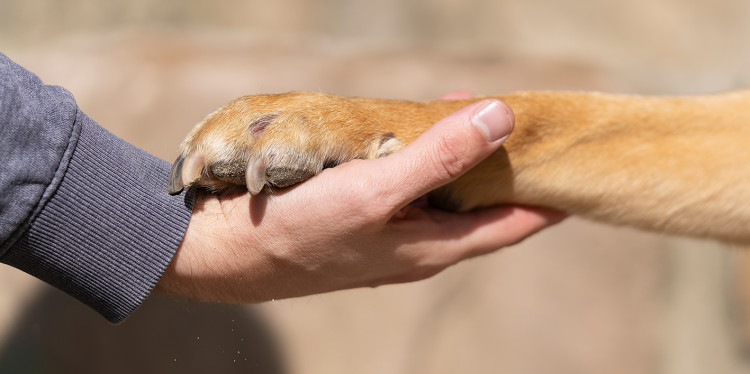
Across borders
The new Topical Programme at the University of Münster entitled “Animal Personality Meets Personality Psychology” got going at the beginning of October with a kick-off workshop. The aim of the project is to build bridges not only between these two fields of research – animal personality and personality psychology – but also to related disciplines. In addition to working groups from the fields of Biology and Psychology, researchers are also involved from the Faculty of Medicine and the Departments of Psychology, Sports Science and History/Philosophy. The two spokespersons for the project – Prof. Melanie Dammhahn (Biology) and Prof. Mitja Back (Psychology) provide insights into the research being planned.
Save the date: The kick-off workshop will be followed on October 2 by the masterclass entitled “Integrating Human and Animal Personality Research”. The programme includes public talks, to which anyone interested is invited (see below).

Personality psychology is all about investigating individual differences in what humans experience and how they behave. In my working group we have been working for many years now on analysing personality from a more behaviour-based point of view and in contexts which are as realistic as possible – both in behavioural experiments in the lab and in people’s everyday lives. For example, we look to see in which situations differences between people are expressed particularly strongly, how variable different people are in their behaviour, how these differences develop as a result of social experiences during their lives, and what social consequences personality has.
We can learn a great deal from biological research in the process. For example, as animals can’t be asked directly, behavioural biologists have, for a long time now, been analysing the differences in behaviour and their functions in the context of their surroundings. With similar findings, interestingly. In humans, and to a similar extent in animals, there are marked differences between individuals – for example as regards sociability, curiosity, dominance, anxiety or an appetite for taking risks.
In the Topical Programme, and working with international experts, our aim is to gain a better understanding of personality across the borders between species. What aspects of personality can be distinguished? How can they be measured? How do they develop? What consequences do they have? We are also concerned with practical implications. Only when we have understood the differences in personalities can we develop effective measures relating to prevention, intervention and training which are oriented, tailor-made, to the characteristics of individuals. I see great potential here for applications, for example in personalised medicine and psychotherapy, for measures relating to education, training and human resources development, as well as for new approaches in the debates on the relationship between humans and animals.
Prof. Mitja Back, Psychological Diagnostics and Personality Psychology study group at the Institute of Psychology

Behavioural biology analyses and explains variability in the behaviour of animals. The aim of our research is to gain a better understanding of these individual differences: Why are some individuals in a species more likely to take risks, be more explorative or more social than others? What are such differences based on? What consequences does variability in behaviour have for interactions between individuals of the same species or between those of different species? How does this variability help animals to adapt to changes in their environment? In order to find answers to these questions, in my working group we link up long-term data from outdoors with behavioural experiments and physiological measurements both outdoors and in the lab.
In its beginnings, biological research into “animal personality” was heavily influenced by personality psychology. The detailed and explicit classification of personalities in humans has, in particular, inspired a systematic consideration of animal behaviour. In addition, psychological research has always been, and still is, a pioneer in the development of complex statistical processes. For many years now, however, there have been fewer and fewer direct exchanges between these fields of research.
In the Topical Programme our aim is to bring back together biological behavioural research relating to animals and psychological research relating to humans. This interdisciplinary approach promises to deliver a wide variety of theoretical and methodological ideas. We are also fascinated by the potential which insights arising from a comparison of species can provide: which principles relating to the structure, development and consequences of personality can be found in which species – and why? These considerations are opening up a new perspective on which general principles of personality humans share with other animals, which differences in personality arise in the course of evolution, and – last but not least – what is it that is unique to humans.
Prof. Melanie Dammhahn, Department of Behavioural Biology at the Institute of Neuro- and Behavioural Biology
This article is taken from the university newspaper wissen|leben No. 6, 1 October 2025.
